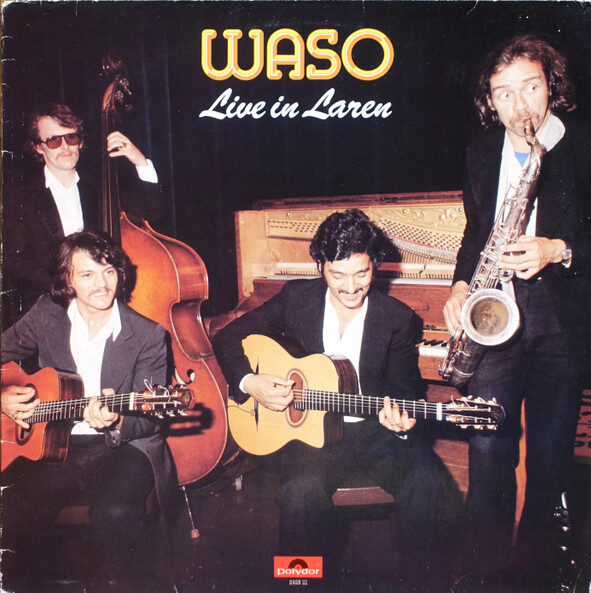Formed in the early 1970s, Waso was a Belgian gypsy jazz group that became a significant force in the European jazz scene. The band’s name was derived from the first two letters of the surnames of its founding members, Dajo De Cauter, Fapy Lafertin, and Jeff C. Wickle. Waso’s music, deeply rooted in the traditions of Django Reinhardt, blended energetic gypsy swing with innovative musical ideas, captivating audiences with their virtuosity and creativity.
Led by the multi-talented Dajo De Cauter, who played guitar and clarinet, Waso embodied the spirit and legacy of Django Reinhardt while infusing their own unique musical expressions. Fapy Lafertin, a renowned guitarist, contributed his exceptional skills to the group, enriching their sound with his dynamic playing. Jeff C. Wickle, a versatile bassist, provided the solid foundation and rhythmic drive that anchored the band’s performances.
Throughout their career, Waso underwent a few lineup changes, each adding new dimensions to their sound. Members such as Jo Van Houtte (accordion), Koen De Cauter (guitar, saxophone), Michel Verstraeten (double bass), Tcha Limberger (violin, guitar, vocals), Vivi Limberger (vocals), and Waso De Cauter (guitar, double bass) all contributed their talents and distinctive musical voices to the ensemble, shaping the band’s evolving sound and style.
Waso’s music was a vibrant blend of Gypsy swing, Belgian folk influences, and improvisational jazz elements. Their performances were characterized by intricate melodies, lively rhythms, and captivating solos, showcasing the exceptional talents of each member. Their infectious energy and technical brilliance earned them a dedicated following and critical acclaim.
Although information about their specific discography from this period is limited, Waso’s live performances were highly regarded for their infectious enthusiasm and exceptional musicianship. They toured extensively, captivating audiences throughout Europe and beyond, and leaving an indelible mark on the gypsy jazz genre.
The band’s success can be attributed not only to their remarkable individual skills but also to their ability to create a cohesive and powerful collective sound. The synergy between the members of Waso was palpable, resulting in performances that were at once technically dazzling and emotionally resonant.
While Waso disbanded in the late 1970s, their influence on the gypsy jazz genre and their contributions to the Belgian jazz scene are undeniable. The group’s legacy lives on, and their music continues to inspire and captivate jazz enthusiasts, ensuring that their unique blend of swing and innovation remains cherished by future generations.
